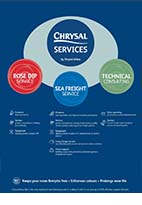“It’s all about the balance between continuity in the business and harmony in the family”
The strength of family business and its importance to an economy is widely praised. The family business is a success. But what about the ‘behind the scenes’ of all these success stories? What is ‘the real story’? Because where people work, there are strong emotions.
It seems that within the family, the emotional factor plays an even greater role than in a non-family business. Emotions can be a source of strength, but also a source of conflict. Why is one family business able to handle these emotions, whereas another family business becomes a victim of their emotions? In short: what is the psychology behind the family business?
Globally, 60% of companies are family businesses and in the flowers sector, the percentage is even higher. “We can, of course, address the issues that arise within families in a very substantive and technical way, but if we were to focus only on that, we would go wrong. Then you disregard the dynamics of a family business with its family bonds and emotions. Therefore, it is always an important skill when working with family businesses to find the balance between the continuity of the company and the harmony in the family.”
Characteristic of a family business is that it does not look at the next quarterly figures but to future generations. That makes you look differently at things like land holdings and investments. On the other hand, you see that in many family businesses, they say they are looking at the long term, but that they don’t talk about things like succession. In practice, they often leave it too late. That may be because they find they are having too much fun to think about it, sometimes with the result that they are hit with a succession of health problems. Or sometimes they talk so much about succession that children have to fit in with it or so little that children no longer identify with the business.
The situation that the successor is not considered as capable is another classic example. These are very difficult cases, in which a conflict of roles occurs between the director of the company who is also the father of the son or daughter. Also, partners often play an important role in a family business. They have no blood relationship, can sometimes view other things as more important and are also often seen as troublemakers. At the same time, the family must also realize that partners do not just present problems. If the children are the future of the business, they are, after all, also the children of the partners.”
Family agreement
It is recommended that making such difficult issues discussable so that the family can form an opinion. This can be done by a family agreement or mission statement about the company and the relationship between the family and the company. It sets out how the family views the sale of the business or the role of family members in the business. If a situation then arises, you can fall back on the agreement, rather than the emotion of the moment in order to come to a decision.
The role in this is not to say what should or shouldn’t happen, but to put a process in motion, so there is a certain development in the process. Create a certain objectivity in what the company needs and if that is feasible. These can sometimes be painful questions.
The trend is that there are far more familycontrolled enterprises emerging, in which the family owns the business, but does not actually run the business, instead of the family-run enterprise like we are used to. But that also brings with it new challenges.


